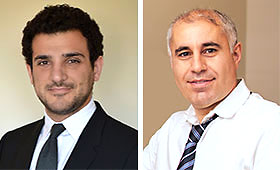Pharmacotherapy May Help Patients With Combat-Related PTSD
Abstract
PTSD in military personnel and veterans is often severe and complex in presentation, but there are pharmacological options that can help with the multifaceted symptoms.

Posttraumatic stress disorder (PTSD) is a multifaceted condition whose treatment poses significant challenges. Patients with PTSD experience a range of symptoms, including nightmares and flashbacks, avoidance of trauma-related stimuli, negative thoughts or feelings, and heightened arousal and reactivity
PTSD is common in the general population; it is estimated that 6.4% of U.S. adults will experience the disorder over the course of their lifetimes (1). Veterans exposed to combat are at an even greater risk of PTSD. According to the U.S. Department of Veterans Affairs, 11% to 20% of veterans of the wars in Iraq and Afghanistan are diagnosed with PTSD each year.
Treating veterans for PTSD can be challenging, but several studies point to best places to start.
Start With Antidepressants
If you are considering prescribing pharmacotherapy for a patient with PTSD, you should likely start with a selective serotonin reuptake inhibitor (SSRI). While the SSRIs paroxetine and sertraline are the only two medications are approved by the Food and Drug Administration (FDA) for the treatment of PTSD, studies suggest other SSRIs may be equally effective at reducing a variety of PTSD symptoms.
Other antidepressants that have shown some promise in reducing symptoms of PTSD include serotonin-norepinephrine reuptake inhibitors (SNRIs); however, studies suggest these medications may be less effective for reducing arousal symptoms, potentially due to their ability to raise norepinephrine levels (2). Similarly, atypical antidepressants such as mirtazapine can help to improve sleep in patients with PTSD.
Other Medications to Consider
Several small studies, including one that appeared in the American Journal of Psychiatry in 2013, support the use of prazosin—an alpha1-adrenoreceptor antagonist—to address nightmares and other symptoms in patients with PTSD. A larger study, which focused only on outcomes in veterans, concluded that prazosin was not more effective than placebo at improving sleep quality and reducing nightmares in veterans with PTSD (3).
Ongoing investigations with the N-methyl-D-aspartate receptor modulator ketamine are examining its potential as a rapid-acting therapeutic agent for the treatment of PTSD in veterans (5). A pilot study in the general population has shown encouraging results (6). If these results are replicated, it will be an exciting development for the many veterans with PTSD.
More often than not, PTSD is associated with co-occurring psychiatric disorders such as depression, anxiety, and substance use disorders (1). The commonly used PTSD medications described above have the additional positive effect of addressing comorbid depressive or anxiety disorders. In contrast, PTSD pharmacotherapy is unlikely to improve symptoms of substance use disorders in patients. Effective pharmacotherapies exist for alcohol and opioid use disorders and addressing them is an effective way to reduce the burden of PTSD illness.
Medications to Avoid
There is little evidence to suggest that antipsychotics can lead to improvements in patients with PTSD. Similarly, studies have found little evidence that benzodiazepines benefit these patients. In the long run, there is evidence that benzodiazepines can even worsen PTSD symptoms and functional status. When used acutely after a traumatic event, they can also increase the risk of developing PTSD (2).
Pair Medications With Psychotherapy
Multiple treatment guidelines, including the VA/DoD Clinical Practice Guidelines, recommend psychotherapy as a first-line treatment for PTSD. Such therapies include cognitive processing therapy, prolonged exposure therapy, and present centered therapy, among others (4).
Although it has not been demonstrated that combining pharmacotherapy and psychotherapy leads to an improved therapeutic response in PTSD, it is conceivable that in real-world settings, it can lead to greater compliance as drug treatments may reduce the burden of symptoms that arise during psychotherapy sessions. ■
References
1. Pietrzak RH, Goldstein RB, Southwick SM, Grant BF. Prevalence and Axis I Comorbidity of Full and Partial Posttraumatic Stress Disorder in the United States: Results from Wave 2 of the National Epidemiologic Survey on Alcohol and Related Conditions. Journal of Anxiety Disorders. 2011;25(3):456-65.
2. Abdallah CG, Averill LA, Akiki TJ, Raza M, Averill CL, Gomaa H, et al. The Neurobiology and Pharmacotherapy of Posttraumatic Stress Disorder. Annual Review of Pharmacology and Toxicology. 2019;59(1):171-89.
3. Raskind MA, Peskind ER, Chow B, Harris C, Davis-Karim A, Holmes HA, et al. Trial of Prazosin for Post-Traumatic Stress Disorder in Military Veterans. The New England journal of medicine. 2018;378(6):507-17.
4. Lee DJ, Schnitzlein CW, Wolf JP, Vythilingam M, Rasmusson AM, Hoge CW. Psychotherapy Versus Pharmacotherapy For Posttraumatic Stress Disorder: Systemic Review And Meta-Analyses To Determine First-Line Treatments. Depression and Anxiety. 2016;33(9):792-806.
5. Abdallah CG, Roache JD, Averill LA, Young-McCaughan S, Martini B, Gueorguieva R, et al. Repeated Ketamine Infusions for Antidepressant-resistant PTSD: Methods of a Multicenter, Randomized, Placebo-controlled Clinical Trial. Contemporary Clinical Trials. 2019;81:11-8.
6. Feder A, Parides MK, Murrough JW, Perez AM, Morgan JE, Saxena S, et al. Efficacy of Intravenous Ketamine for Treatment of Chronic Posttraumatic Stress Disorder: a Randomized Clinical Trial. JAMA Psychiatry. 2014;71(6):681-8.



